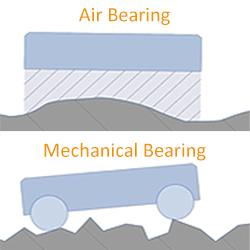Tiny, Cheap, Foolproof: Seeking New Component to Counter Counterfeit Electronics
New program seeks tool that authenticates electronic components at any step of the supply chain
Used and non-authentic counterfeit electronic components are widespread throughout the defense supply chain; over the past two years alone, more than one million suspect parts have been associated with known supply chain compromises 1.
The problem is pervasive, with both expensive and inexpensive electronic parts being targeted. Counterfeit, or otherwise suspect electronic components, present a critical risk for the Department of Defense (DoD), where a malfunction of a single part could lead to system failures that can put warfighter lives and missions at risk. A new DARPA program seeks to develop a tool to verify, without disrupting or harming the system, the trustworthiness of a protected electronic component.
The DARPA Supply Chain Hardware Integrity for Electronics Defense (SHIELD) program seeks proposals to develop a small (100 micron x 100 micron) component, or dielet, that authenticates the provenance of electronics components. Proposed dielets should contain a full encryption engine, sensors to detect tampering and would readily affix to today's electronic components such as microchips.
Successful development of SHIELD technology would provide 100 percent assurance against common threat modes:
*Recycled components that are sold as new
*Unlicensed overproduction of authorized components
*Test rejects and sub-standard components sold as high-quality
*Parts marked with falsely elevated reliability or newer date of manufacture
*Clones and copies, which may be of low quality, or may include hidden functionality
*Components that are covertly repackaged for unauthorized applications
"SHIELD demands a tool that costs less than a penny per unit, yet makes counterfeiting too expensive and technically difficult to do," said Kerry Bernstein, DARPA program manager. "The dielet will be designed to be robust in operation, yet fragile in the face of tampering. What SHIELD is seeking is a very advanced piece of hardware that will offer an on-demand authentication method never before available to the supply chain."
The dielet will be inserted into the electronic component's package at the manufacturing site or affixed to existing trusted components, without any alteration of the host component's design or reliability. There is no electrical connection between the dielet and the host component. Authenticity testing could be done anywhere with a handheld probe or with an automated one for larger volumes. Probes need to be close to the dielet for scanning. After a scan, an inexpensive appliance (perhaps a smartphone) uploads a serial number to a central, industry-owned server. The server sends an unencrypted challenge to the dielet, which sends back an encrypted answer and data from passive sensors-like light exposure-that could indicate tampering.
"The Department of Defense puts severe demands on electronics, which is why a trusted supply chain is so important" said Bernstein. "SHIELD is a technology demonstration leveraging the asymmetry of scaling for security. While the program is being funded by DARPA, industry will adapt future implementations to make the technology scalable to the industry and the Defense supply chain."
SHIELD is seeking proposals that revolutionize electronic authentication with potential scalability and advanced technology not available today. DARPA will host a Proposers' Day Workshop in support of the SHIELD program on March 14, 2014. More information is available at http://go.usa.gov/B6BT.
1"Inquiry into Counterfeit Electronic Parts in the Department of Defense Supply Chain", Report of the Committee on Armed Services, United States Senate, May 21, 2012, pp i-ii
Featured Product

PI USA - 7 Reasons Why Air Bearings Outperform Mechanical Bearings
Motion system designers often ask the question whether to employ mechanical bearings or air bearings. Air bearings deserve a second look when application requirements include lifetime, precision, particle generation, reproducibility, angular accuracy, runout, straightness, and flatness.
